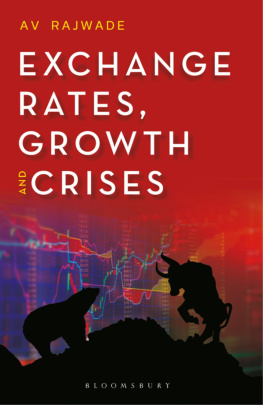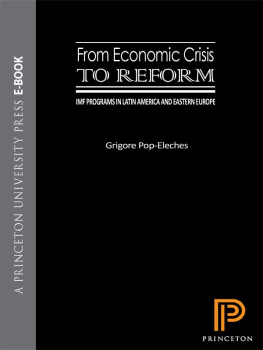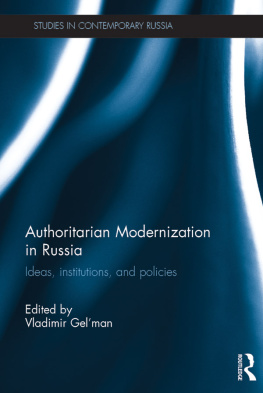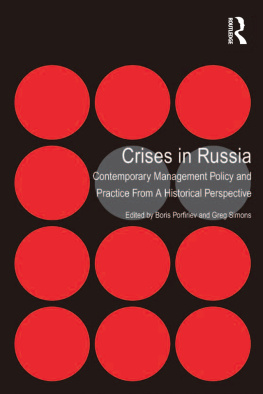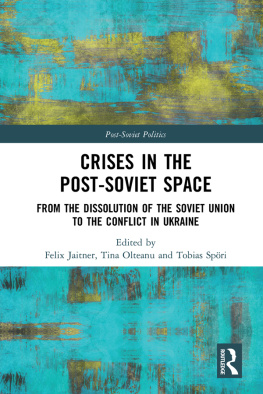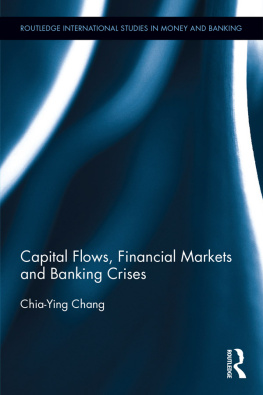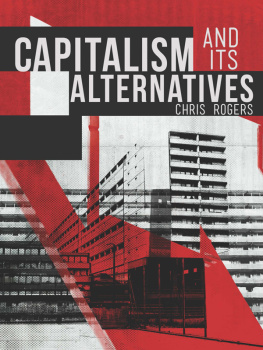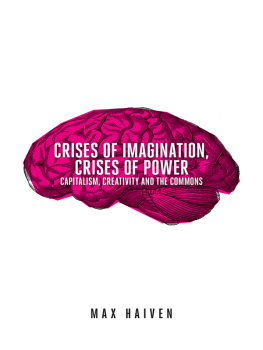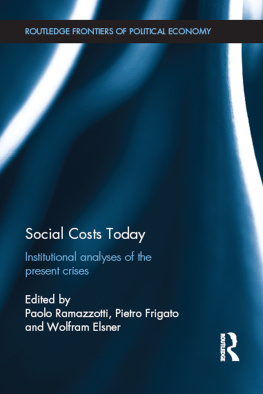Russias Economy in an Epoch
of Turbulence
Over the course of the last thirty years, post-communist Russia has either been struggling with crises, discussing the lessons learned from past crises, or attempting to trace the contours of future crises. Based on the authors own experiences and his research over this long period, this book traces the logic of the development of the crises and the anti-crisis policies, and shows the continuity, or discontinuity, in determining particular solutions. It demonstrates how perceptions of the priorities for economic policy, and the problems of economic growth and the formation of a new model and its alternatives were formed and how they changed. It also outlines the evolution of ideas about the role of social politics and human capital sectors in addressing anti-crisis and modernization issues, and it discusses the changing views on the institutional and structural priorities for Russias development. This is an important book on an economic subject of crucial global significance, by a leading participant.
Vladimir Mau was a leading participant in the formulation of economic reforms in Russia in the 1990s2010s. In 199293, he was Advisor to the Chairman of the Russian government and, in 19972002, he was Head of the Working Centre for Economic Reforms of the Russian government. He is a leading expert in the fields of economic theory, the history of economic thought and the Russian national economy. He is the author of twenty-five monographs, books and textbooks published in Russia and the UK, as well as about 700 published papers. He is currently Rector of the Russian Presidential Academy of National Economy and Public Administration (RANEPA).
BASEES/Routledge Series on Russian and East European
Studies
Series editor: Richard Sakwa, Department of Politics and International Relations, University of Kent
Editorial Committee:
Roy Allison, St Antonys College, Oxford, Birgit Beumers, Department of Theatre, Film and Television Studies, University of Aberystwyth, Richard Connolly, Centre for Russian and East European Studies, University of Birmingham, Terry Cox, Department of Central and East European Studies, University of Glasgow, Peter Duncan, School of Slavonic and East European Studies, University College London, Zoe Knox, School of History, University of Leicester, Rosalind Marsh, Department of European Studies and Modern Languages, University of Bath, David Moon, Department of History, University of York, Hilary Pilkington, Department of Sociology, University of Manchester, Graham Timmins, Department of Politics, University of Birmingham, Stephen White, Department of Politics, University of Glasgow
Founding Editorial Committee Member:
George Blazyca, Centre for Contemporary European Studies, University of Paisley
This series is published on behalf of BASEES (the British Association for Slavonic and East European Studies). The series comprises original, high-quality, research-level work by both new and established scholars on all aspects of Russian, Soviet, post-Soviet and East European Studies in humanities and social science subjects.
For a full list of available titles please visit: https://www.routledge.com/BASEES-Routledge-Series-on-Russian-and-East-European-Studies/book-series/BASEES. Recently published titles:
Rethinking the Russian Revolution as Historical DivideEdited by Matthias Neumann and Andy Willimott
Post-Soviet ArmeniaThe New National Elite and the New National Narrative
Irina Ghaplanyan
Russias Economy in an Epoch of TurbulenceCrises and Lessons
Vladimir Mau
Oil and the Economy of RussiaFrom the Late-Tsarist to the Post-Soviet Period
Nat Moser
The South Caucasus Security, Energy and EuropeanizationEdited by Meliha B. Altunisik and Oktay F. Tanrisever
First published 2018
by Routledge
2 Park Square, Milton Park, Abingdon, Oxon OX14 4RN
and by Routledge
711 Third Avenue, New York, NY 10017
Routledge is an imprint of the Taylor & Francis Group, an informa business
2018 Vladimir Mau
The right of Vladimir Mau to be identified as author of this work has been asserted by him in accordance with sections 77 and 78 of the Copyright, Designs and Patents Act 1988.
All rights reserved. No part of this book may be reprinted or reproduced or utilised in any form or by any electronic, mechanical, or other means, now known or hereafter invented, including photocopying and recording, or in any information storage or retrieval system, without permission in writing from the publishers.
Trademark notice: Product or corporate names may be trademarks or registered trademarks, and are used only for identification and explanation without intent to infringe.
British Library Cataloguing-in-Publication Data
A catalogue record for this book is available from the British Library
Library of Congress Cataloging-in-Publication Data
Names: Mau, V.A. (Vladimir Aleksandrovich), author.
Title: Russias economy in an epoch of turbulence : crises and lessons /
Vladimir Mau.
Other titles: Krizisy i urok. English
Description: Abingdon, Oxon ; New York, NY : Routledge, 2018. |
Series: BASEES/Routledge series on Russian and East European studies ; 118 |
Includes bibliographical references and index.
Identifiers: LCCN 2017029588 | ISBN 9781138061712 (hardback) |
ISBN 9781315162188 (ebook)
Subjects: LCSH: Russia (Federation) Economic conditions 1991. |
Russia (Federation) Economic policy 1991. | Financial crises Russia (Federation).
Classification: LCC HC340.12 .M383413 2018 | DDC 330.947 dc23
LC record available at https://lccn.loc.gov/2017029588
ISBN: 978-1-138-06171-2 (hbk)
ISBN: 978-1-315-16218-8 (ebk)
Typeset in Times New Roman
by Florence Production Ltd, Stoodleigh, Devon, UK
Preface
This book explores global crisis started in 200708 and its impact on Russia. The analysis is carried out in the context of the accumulated experience of large-scale (global, systemic or structural) crises of the past 100 years.
The specificity of Russian post-communist development is determined by the overlapping of several crisis processes that, with all their complexities, are not unprecedented and may be compared with some of the important episodes of global and domestic economic history of the twentieth century. Quite relevant for this analysis are the studies of two previous structural crises (which could be considered global as well): those of the 1930s and the 1970s. Each of these crises formed an economic model that was new for their time and new approaches to theoretical research. It is also important to notice specific characteristics of the radical transformations of socio-economic systems (revolutions) twice faced by Russia in the twentieth century. Also appropriate seems to be the experience of profound (systemic) economic transformations in Russia, forming a model of a state market economy (new economic policy; NEP) at the beginning of the 1920s and its destruction at the end of that decade. Sixty years later, Russia again attempted a complex transformation into a market economy (or market socialism, as it seemed at the beginning of transition) in the second half of the 1980s.


